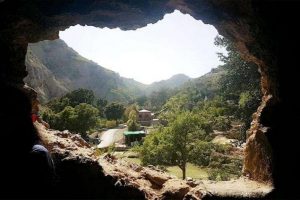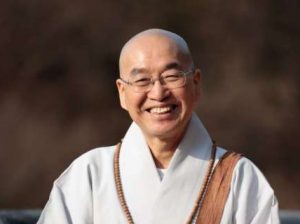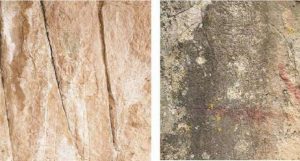In our every deliberation, we must consider the impact of our decisions on the next seven generations.
— Ancient Iroquois philosophy*
The Mind and Life Institute organized a live-streamed meeting and discussion between His Holiness the Dalai Lama and the environmental activist Greta Thunberg on 10 January 2021, along with leading climate scientists Susan Natali and William Moomaw, on the topic of Earth’s rising temperatures, raising awareness about the feedback loops that are accelerating global warming. Susan Bauer-Wu, who has served as the Mind and Life Institute’s director since 2015, has since penned a new book, A Future We Can Love: How We Can Reverse the Climate Crisis with the Power of Our Hearts and Minds. This volume is both an invaluable companion to the climate conversation and a standalone compendium of expert input from leading climate scientists, personal anecdotes, Buddhist philosophy, and even Buddhist practices, from lojong to grief meditations, and, notably, words of encouragement to mitigate the hard-hitting facts, all delivered in a wonderfully unexpected familial approach to scientific prose.
Susan weaves elements from the above-mentioned meeting together with further profound information and statistics from people within her sphere—from primatologist and anthropologist Jane Goodall and Buddhist monk Matthieu Ricard to Christiana Figueres, executive secretary of the United Nations Framework Convention on Climate Change, Don Perovich, professor of engineering at Dartmouth College researching sea ice geographics, and philosopher and environmentalist Vandana Shiva.
I was delighted and honored to be able to ask Susan a few questions about her book and about her journey to becoming more ecologically responsible.

BDG: In embarking on a more ecologically sustainable lifestyle, what were some of your challenges, and, knowing what you know now, what advice would you like to be able to give the younger you?
Susan Bauer-Wu: In retrospect, while I thought I was a good global citizen, my much younger self was fairly clueless. When it came to driving, the younger me was most interested in comfort and getting a car that was spacious and with as much horsepower as I could afford. I applied a similar logic to home utility use. I can remember living in an apartment where utilities were included [paid by the landlord]. Since the cost [to me] was not an issue, I would set the heat and air conditioning thermostat to be quite warm in the winter and cool in the summer. I would take long, hot showers. Again, I thought of my comfort first and didn’t make the connection of how the mindless use of utilities at home contributes to fossil-fuel consumption and global warming. The same went for my love of travel and taking as many vacations to faraway places as I could.
My advice to my younger self, knowing what I know now, would be to be mindful and remember that my everyday habits and personal luxuries matter in the bigger picture of climate change. It’s essential to not just think about my comfort and pleasures, but rather to remember that I am sharing one atmosphere and limited natural resources as part of an interconnected web of all life on this planet.
BDG: How would you advise an individual on making a meaningful difference through diet and shopping choices?
SBW: Plant-based diets are not only healthier for us, they also have a significantly lower carbon footprint than eating meat and dairy products. Livestock animals, particularly cattle, contribute to about 14.5 per cent of greenhouse gas emissions. Cows not only require a tremendous amount of energy to feed and farm, but they also release methane and other gasses through belching in response to how they process food. Cutting down on meat consumption and eating a vegetarian—and ideally vegan—diet can make a meaningful difference in reducing global warming.
Buying local food and products also makes a difference, as does reusing clothes and home goods, as they all cut down on fossil fuels needed to transport and manufacture. I’m also a fan of the “sharing economy,” where neighbors are opting to share common household items. In addition, it’s helpful to minimize purchases of single-use plastics and to refill liquid containers when possible. Remember, it takes up to a thousand years for plastic to decompose, besides the dangerous effects of phthalates and BPAs from plastics on our health as well as the health of other animals.
BDG: If there was one thing that you would like your readers to take away from your new book, what would that be?
SBW: Have conversations with others about climate-related matters. Talk about the science of feedback loops, interdependence, emotions such as anxiety and grief, and what you can do individually and collectively. The more we talk about it, we learn, we move through feeling numb and scared to feeling more connected with one another and the natural world, and we are more motivated and able to take action.”
BDG: And lastly, but certainly not least, what impelled you to write this book?
SBW: The catalyst for this book was an online event with His Holiness the Dalai Lama, Greta Thunberg, and climate scientists that my organization, the Mind & Life Institute, hosted in January 2021. People around the world were quite moved by the coming together of the Dalai Lama and Greta, perhaps because they are generations and cultures apart—a sage spiritual leader and a young activist, who, despite their differences, are deeply aligned on this issue, the most significant in human history.
I was invited to write a book based on this historic meeting. However, once I considered it with input from other thought partners, we realized there was a much fuller narrative about the climate crisis that needed to be shared. Ultimately, I was compelled to write the book because I am deeply concerned about the state of the planet and the unsustainable consumptive lifestyles of modern society. I want to do whatever I can to literally ensure a future we can love for our grandchildren and all living beings as there’s a critical window now that requires each of us to wake up and show up.

•••
A Future We Can Love is a positive addition to the climate crisis conversation, filled with hands-on practical advice from world-leading experts. Read the book, encourage your friends to read it, and then get out there and help make the world the paradise we know it is. We may not be able to do it all, but we can do something.
Further thoughts
I was in a green room waiting to go onto a film set when I overheard a couple of young strangers loosely flirting and chatting about fashion. She asserted that she’d never shop in a way that endorsed child slavery. He replied that it wasn’t a matter he’d given any thought to, and nor would he.
At that moment, I saw how divided the world seems. Yet, here we are, all together on a tiny blue ball, a closed system of air and water, weightless in the abyss of the unimaginably vast vacuum of space.
Please choose, and choose your regrets wisely.
Last week, BDG published a companion essay to this interview, wherein I discuss some of my tendrilled thoughts stimulated by this conversation. I invite you to join me there, where I offer you some challenging questions.***
* “Cast not over your shoulder behind you the warnings of the nephews and nieces should they chide you for any error or wrong you may do, but return to the way of the Great Law which is just and right. Look and listen for the welfare of the whole people and have always in view not only the present but also the coming generations, even those whose faces are yet beneath the surface of the ground—the unborn of the future Nation.” The Seventh Generation Principle, The Constitution of the Iroquois Nation (The Great Binding Law), the Great Law of the Haudenosaunee, the founding document of the Iroquois Confederacy, the oldest living participatory democracy on Earth.
** Dalai Lama-Greta Thunberg Dialogue a Call to Action for a Planet in Peril (BDG)
*** Exploring the Big Dilemmas in Susan Bauer-Wu’s A Future We Can Love (BDG)
References
Bauer-Wu, Susan. 2023. A Future We Can Love: How We Can Reverse the Climate Crisis with the Power of Our Hearts and Minds. Boulder, CO: Shambhala Publications
See more
Treasury of the Eye of True Teaching (Shambhala Publications)
Related features from BDG
Book Review: That Is Not Your Mind! Zen Reflections on the Surangama Sutra
Book Review: Talking Zen by Alan Watts
Book Review: Zen Master Tales: Stories from the Lives of Taigu, Sengai, Hakuin and Ryokan














